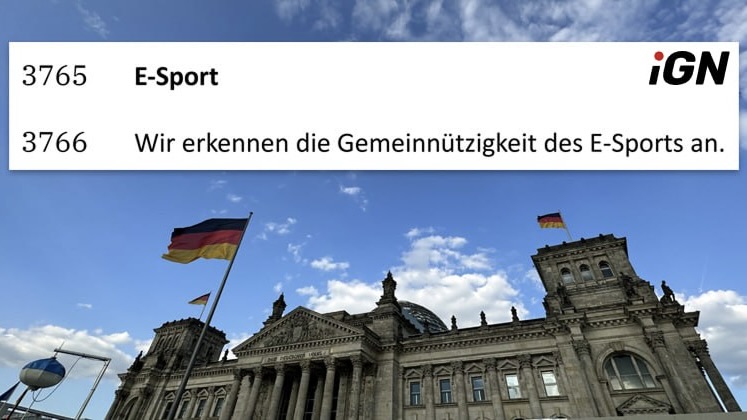Germany Recognizes Esports as a Publicly Beneficial Activity

The German federal cabinet has approved a draft law that recognizes esports as a publicly beneficial activity. This status will grant esports organizations tax benefits and access to government funding. The proposal still needs approval from the Bundestag and Bundesrat and is set to take effect on January 1, 2026.
Main Provisions of the Bill
The decision follows years of debate and negotiation. The bill states that esports can qualify as a publicly beneficial activity under certain conditions.
- Games featuring realistic violence — such as Counter-Strike 2, Call of Duty, and PUBG: Battlegrounds — will not be eligible for this status.
- Tactical and strategic titles on all platforms, including mobile, will be allowed.
- Teamwork and the development of social skills will be key criteria.
In this way, the government acknowledges that esports clubs and associations can serve important social functions.
Reactions from Politicians and Experts
Support from Federal States and Associations
The federal cabinet’s decision was welcomed in North Rhine-Westphalia, where esports has been developing actively for years. The head of the state chancellery, Nathanael Liminski, said the move will “take esports to a new level: providing legal certainty, supporting volunteer work, and opening up new opportunities for engagement.”
According to Liminski, the collaboration of Landessportbund NRW, game-Verband, and ESBD played a key role in pushing for this recognition. He noted that esports clubs can now invest in infrastructure, combat social isolation, and become local community hubs.
Comments from Federal Politicians
CDU parliament member Joachim Eßmayer noted that esports fosters team spirit, fairness, and social skills just like traditional sports. He emphasized that the new framework could also support addiction prevention and improve media literacy among young people.
Digital Affairs Minister Fabian Mehring (Freie Wähler) called the day the draft was passed “historic” and added that it closes a “fairness gap” compared to countries like Denmark and South Korea, where esports has long been supported.
Benefits for Esports Organizations
Once the law comes into force, esports clubs and associations will be able to enjoy the following benefits:
| Benefit | Description |
|---|---|
| Tax benefits | Reduced tax burden and exemptions from certain fees |
| Government funding | Access to public funding and support programs |
| Donation receipts | Ability to officially collect donations from individuals and companies |
| Social role | Encouraging communication, teamwork, and reducing social isolation |
Restrictions and Conditions
The law also includes several restrictions:
- Titles featuring realistic violence or violating human dignity will be excluded.
- Games without an official USK age rating will not be allowed.
- Games where success heavily depends on in-game purchases (such as the Ultimate Team mode in EA Sports FC) will be reviewed on a case-by-case basis.
The goal is to promote disciplines that offer social benefits and are safe for young audiences.
What’s Next
The draft has been approved by the federal cabinet and now awaits consideration by the Bundestag and Bundesrat. If adopted, it will take effect on January 1, 2026, marking a new chapter in the development of esports in Germany.
